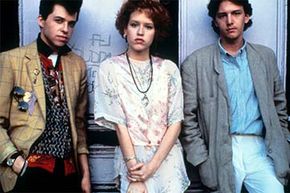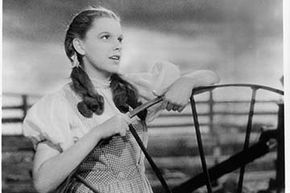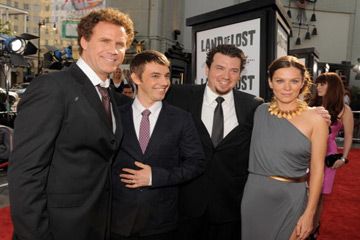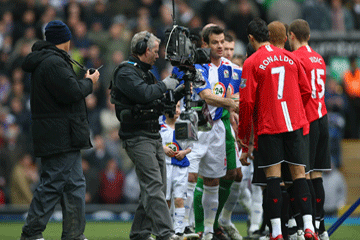Have you ever looked at something for so long that everything starts to blend, totally messing with your perspective? Much as my editor critiques my work, filmmakers also need outside opinions to call attention to the good, the bad and the ugly aspects of movies, often turning to audience testing to gain this critical input.
In fact, mega-hits like "Fatal Attraction," "E.T. – the Extra-Terrestrial," "Pretty in Pink" and "Pretty Woman" were all seriously altered following audience testing [source: Bay]. Now, I liked Duckie just as much as the next gal, but the test audience accurately recognized that he was firmly entrenched in the zero chemistry friend zone, strongly suggesting instead that Ms. Ringwald's character should be with oh-so-dreamy Blaine [source: Shewfelt]. Other movies, like "Seven" and "Charlie's Angels: Full Throttle" were tested, with the feedback totally ignored to mixed results -- "Seven" still hit box office gold while the "Charlie's Angels" sequel lost money domestically [source: Radford].
Advertisement
Back in 2005, my cousin Dave had the pleasure of being part of the test audience for a little film called "Wedding Crashers." The producers were understandably a bit skittish about the raunchy nature of the film and needed audience input to soothe their concerns. "The big question at the preview was if they should keep in the nudity and bad language and have an R rating, or if they should tone it down to PG-13," Dave recalls. "The audience said it was so funny they would be killing it to take that stuff out."
In fact, the testing, or "preview" went so well that the film opening was delayed six months to go after the big summertime box-office dollars. The move paid off handsomely for the film, which grossed more than $285 million worldwide, far exceeding the comparatively paltry $40 million production budget [source: Box Office Mojo]. Not too shabby for a couple of guys with nothing better to do than try to score free booze, food and lovin'.
This practice has been around for decades – 1939's "The Wizard of Oz" was test-screened – but many filmmakers don't bother, including director Christopher Nolan ("Man of Steel;" "The Dark Night") [source: Radford]. As was the case with "Wedding Crashers," comedies benefit from testing more than other genres, with test screenings typically offering multiple alternate endings and jokes of different levels. "They will add a raunchy joke or another risky move and see how the audience reacts to it," explains Jack Roberts*, an insider with a major Hollywood studio. "Put it in front of a real audience and you'll know if it goes too far or not."
*Name withheld.
Advertisement





